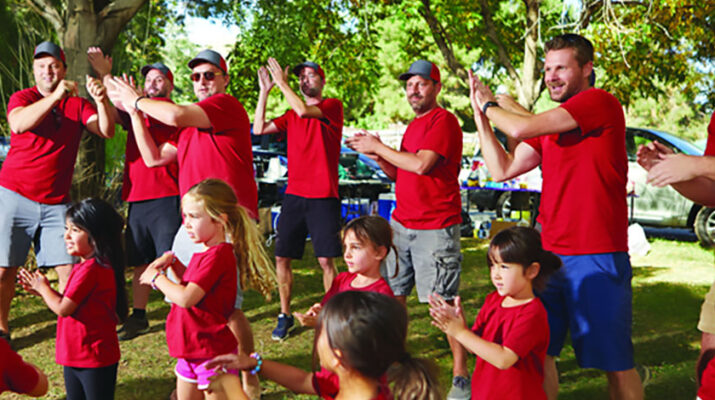By Barbara Pierce
The end is finally in sight.
Now parents wonder how masks, social distancing and lack of interaction with other children will affect their child’s social development. Will their kids be all right?
Interacting with other children is a crucial part of growing up. The pandemic brought that to a standstill. Had the past year gone as usual, the daily life of an average child would have meant actual classrooms, baseball games, middle school plays, birthday parties, high school dances. For some children, there’s been none of that.
“Over the past 14 months, we’ve seen firsthand the impact the pandemic has had on families, especially for children and seniors,” said Hank Leo, CEO, YMCA of the Greater Tri-Valley, with programs and services for the whole family in Rome, Oneida and New Hartford.
“Being isolated, indoors, for a long time, away from friends and family creates loneliness, lack of physical exercise and social-emotional challenges,” he added.
Being around other kids is how kids learn about cooperation, trust, sharing, taking turns, and so very much more. It’s a huge part of growing up that’s been missing for kids who haven’t gone to school, preschool or daycare. However, when you compare preschool vs childcare, there are many differences in the environment and the type of teaching they offer.
The consequences of being cooped up with parents and siblings do depend on the age, home environment, and personality of the child.
Babies and toddlers don’t need interaction with other children; they focus on parents and caregivers.
Between ages 2 to 3, children begin to notice each other; they learn important lessons by connecting with other children. They learn from each other. Their interactions help them get ready to move into pre-K or kindergarten by helping them develop skills they need, how to connect with others, cope with emotion, handle stress, resolve conflicts—all vital skills for a child’s development.
Around the age of 10 or 11, children’s social lives outside their families take on increasing significance. The social skills they learn can’t be taught by reading a book or lessons on Zoom. Like learning a sport, you need to actually do it.
Kids need to figure out who they trust, who likes them, where they fit in and how to find a niche where they can shine. That aspect of growing up kicks into high gear in the middle school years. It is something many kids have had to put on hold during the pandemic.
The hardest-hit groups are older adolescents. This is the time when kids are the most impressionable, vulnerable and malleable. Every social interaction they have, every relationship they form, every event that happens, has the ability to leave a lasting impression on them. Every interaction determines who they become in the future. Whether it’s parent-child relationships, friendships, teacher-student relationships, each relationship has an important role in shaping who they become.
It’s not normal for teens to spend so much time with their families; this is contrary to what they need developmentally, say experts. It’s hampering their next stage of development, moving into adulthood.
What happens when a pandemic puts socialization on the back burner? The long-term impact is not yet known. No one truly knows how the COVID-19 pandemic and the lost socialization opportunities will affect kids in the long run.
And the consequences will depend on how long the disruptions last. If, by fall, school is pretty much back to normal, this time out may become just a small speed bump.
The short answer from child development experts is reassuring words: Most kids will be just fine; kids are malleable and resilient; they’ll be okay.
Now, as we transition to summer, parents will have to determine what activities they consider safe. It will be important to find safe opportunities for kids to be with their peers.
Consider a kids summer camp. “Fun activities to engage brains, opportunities to explore, develop new skills and try new things, physical activities to keep bodies active,” is how the Y Summer Care describes its summer day camps.
“We’re looking forward to our summer day camps, which will be held in the Oneida, Rome and New Hartford communities for children who need this now more than ever,” said Leo.
“We’ve modified our plans to ensure a safe and fun environment for every child,” he added.
For details, see www.ymcatrivalley.org.
The Utica Zoo will also hold on-site day camp for kids aged 3-11, with modifications for safety. “It’s great place for kids to have fun and learn too,” said Kayla Jacobs.
Camps are interactive, encourage socialization, take tours of the zoo, and do crafts.
For details, see uticazoo.org/education/zoocamp.
Photo: YMCA summer day camp, pre-pandemic. The TriValley YMCA offers modified summer day camp this summer.

